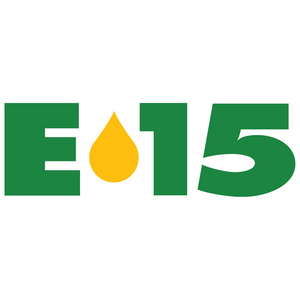Statewide use of E15 would contribute $1B to Minnesota's economy

April 21, 2023
BY Minnesota Bio-Fuels Association
Transitioning to E15 from E10 in Minnesota would contribute $1.06 billion to Minnesota’s gross domestic product (GDP), according to a new study by ABF Economics.
The study said statewide use of E15 in Minnesota will increase ethanol demand, benefit consumers and the state economy and significantly reduce greenhouse gas emissions.
According to ABF Economics, transitioning to E15 on a statewide basis would:
•Save consumers $84 million based on the average price discount between E15 and E10 in 2022.
Advertisement
•Provide $809 million in household income and support nearly 20,000 jobs.
•Reduce 1.02 million metric tons of greenhouse gas emissions per year.
•Expand ethanol demand by 298 million gallons per year.
Advertisement
“Transitioning to E15 on a statewide basis would provide significant benefits in Minnesota by lowering prices at the pump, reducing carbon emissions, and providing additional income and jobs throughout the economy. This study shows not only the benefits of increasing access to higher blends of Minnesota-made renewable fuels, but also the downsides associated with interrupting E15 sales. We urge the Biden administration to immediately issue an emergency waiver to allow consumers full access to the lowest-cost, lowest-carbon fuel this summer,” said Brian Werner, executive director at the Minnesota Bio-Fuels Association (MN Bio-Fuels)
The stability of global and US fuel markets has been impacted by the ongoing conflict in Ukraine, low domestic inventories, recently announced output cuts by OPEC+, and inflationary pressures on fuel consumers. To ease pressure on US fuel supplies, MN Bio-Fuels has joined biofuel and farm leaders in calling on President Biden to authorize sales of E15 this summer. In April 2022, President Biden waived outdated Reid Vapor Pressure (RVP) restrictions on E15, which saved drivers an average of 23 cents per gallon according to the Minnesota Department of Commerce.
The study was prepared by ABF Economics for the MN Bio-Fuels.
Related Stories
CountryMark on July 22 celebrated the completion of more than $100 million in upgrades at its refinery in Indiana, including those related to soybean oil storage. The facility produces renewable diesel via coprocessing technology.
ATOBA Energy and Air Moana are partnering to implement scalable solutions for the supply of SAF. The collaboration aims to ensure long-term SAF availability while supporting local initiatives to develop sustainable fuel production in Tahiti.
While final IRS guidance is still pending, the foundation of the 45Z program is well defined. Clean fuel producers should no longer be waiting; they can now move forward with critical planning and preparation, according to EcoEngineers.
Neste Corp. on July 24 released second quarter results, reporting record quarterly renewable product sales volumes despite weaker margins. SAF sales were up nearly 80% when compared to the first quarter of 2025.
Valero Energy Corp. on July 24 released second quarter results, reporting a profitable three-month period for its ethanol segment. The renewable diesel segment posted a loss, but the company’s new sustainable aviation fuel (SAF) unit operated well.
Upcoming Events










